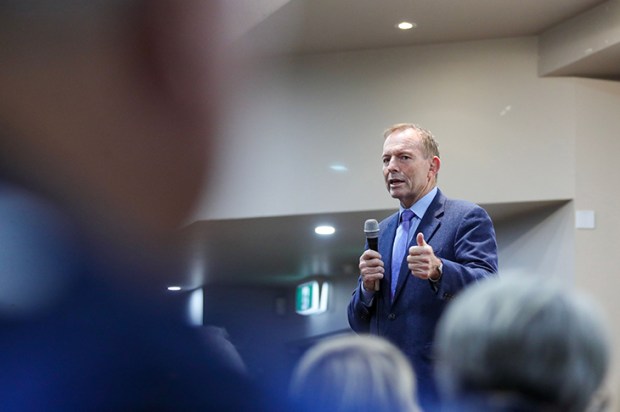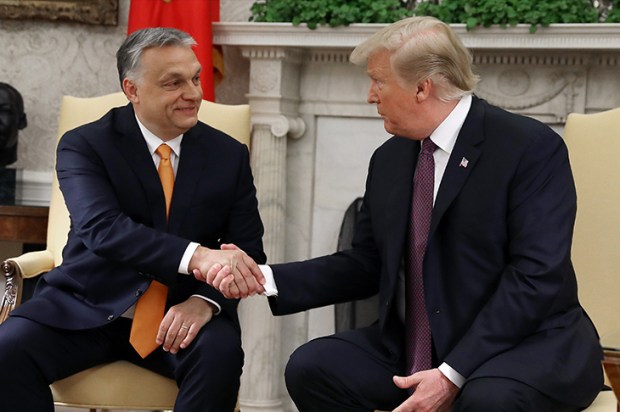Beijing appears confident the Albanese government is gradually shifting Australia away from its long-standing and close US alliance.
The advice probably is that were it done discreetly, Australia could be brought into Beijing’s orbit within a few years.
A problem will arise if, at that time, the prediction by a leading Washington-based strategist, Gregory R. Copley, of China’s descent into chaos is in fact fulfilled.
Along with presenting the hard-left core of the government as centrist, the undermining of the nation’s defences and the weakening of the US alliance are being deliberately obscured by the government’s claim that it strongly supports the long-term future acquisition of US nuclear submarines.
The acquisition is currently under review by the clearly unimpressed US Under Secretary, Elbridge Colby.
If his report is unfavourable, the government will probably emphasise the submarine programme with the UK, along with Mr Albanese’s latest fiction, his more independent ‘Australian way’.
Drawing parallels with a famous statement by wartime Australian PM John Curtin, Mr Albanese claims that his seriously underfunding of Australia’s defence is some sort of admirable virtue.
Behind Labor’s reliance on John Curtin’s words is a Labor fiction promoted by Paul Keating. As described recently by a subscription news service, this is that with the fall of Singapore, Australia was ‘let down’ by the British. The truth, however, is that the British, while fighting for their very survival in Europe, continued to fight major land battles in India and Burma, with the Royal Navy operating on the high seas from Trincomalee, Ceylon. This was all under one of the four Anglo-American Supreme Allied Commanders, Lord Mountbatten, charged with the SE Asia Command.
Later, when the invasion of Japan seemed necessary, the British assembled over 200 vessels in their Pacific Fleet.
Some ‘let down’. 75 days after Curtin’s statement, with the then-US dependency of The Philippines also about to fall, General MacArthur moved the Southwest Pacific Command to Australia. Like the British, the Americans continued to fight.
As to John Curtin’s eulogised statement, it was both gratuitous and unwise. A newspaper New Year’s message, it was made 20 days after Pearl Harbour but 51 days before Singapore fell. It was essentially that Australia now looked to America, ‘free of any pangs’ as to ‘our traditional links or kinship’ with the UK. This talk of making a choice understandably outraged the wartime leadership. President Roosevelt was ‘astonished’ that Curtin would publish this. He said it ‘smacked of panic’ and disloyalty.
Prime Minister Churchill was dismayed that Curtin had revealed to the world the then-secret ‘Europe First’ strategy. Curtin should have of course run the document first past the Allies. Better, he should have been concentrating his efforts in dealing with the sabotage of the war effort by a number of key Australian trade unions, a scandal which no doubt cost the lives of many Allied, including Australian, soldiers and sailors.
This is revealed in Hal Colebatch’s prize-winning book, Australia’s Secret War.
Meanwhile, with the increasing rundown of the economy, the further record fall in living standards likely under Labor, the cost of housing impossibly increased by vote-buying immigration, climate catastrophism delivering billions to Beijing, the substitution of one of the world’s cheapest and most reliable electricity grids with one of the most expensive and unreliable, and with increasing antisemitism tolerated by the authorities, the Albanese government no doubt hopes the resulting widespread despondency will distract concern about their defence rundown.
With the government already successful in damaging the American alliance, what is surprising is not so much that they are held in contempt by Beijing. It is how openly Beijing is in revealing their contempt.
Thus when they recently sent three People’s Liberation Army Navy warships to conduct live-fire exercises in the Tasman Sea between Australia and New Zealand, followed by a spying circumnavigation of the continent, they did not even bother to notify Mr Albanese.
Notwithstanding that, he later claimed they did, even defending their action as ‘legal’. The government actually learned about the incident through an affected Virgin Airways pilot.
More recently, Ambassador Xiao Qian behaved as if he were already the Middle Kingdom’s imperial proconsul in Canberra when he publicly instructed the Albanese government to reject the US request to pull our weight in the alliance and allocate more resources to defence.
He did this in the columns of the Australian, slamming President Trump’s call to the allies but saying nothing about the massive defence budget of communist China, so large it is challenging the United States as the world’s dominant military power.
The simple fact is that rather than descending into a Chinese communist tributary state, Australia should proudly remain part of the worldwide alliance of Western countries, which has been its destiny since settlement.
From the massive arms build-up of communist China and its aggressive activities on land, air and sea, it is clear that as a member, if not leader, of the axis of authoritarian powers, it has imperial ambitions and that these are hardly consistent with Australia’s values.
Communist China remains a brutal dictatorship. Just by way of example, the fate of Tibetans and Uighurs has involved extraordinary degrees of control, genocidal killings, severe repression and slave labour. This has also involved the suppression of traditional culture and religion and the movement of the majority Han race into traditional Tibetan and Uighur areas.
Just in the Xinjiang internment camps at present it is estimated there are between one to three million detainees.
The campaign against the Falun Gong practitioners has been marked by an extraordinary and evil live trade in human organs which independent researchers have well established, supported by the findings of the China Tribunal, an independent body chaired by Geoffrey Nice, KC, who previously prosecuted Slobodan Milošević.
Despite President Trump being elected over eight months ago, Mr Albanese has avoided a meeting in Washington for fear he may be publicly called to account.
But openly demonstrating his priorities, he will soon be seeing the Chinese dictator for the fourth time.
Got something to add? Join the discussion and comment below.
You might disagree with half of it, but you’ll enjoy reading all of it. Try your first month for free, then just $2 a week for the remainder of your first year.













